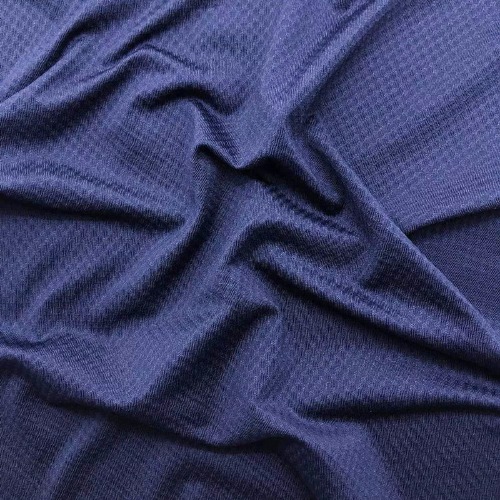Eco-friendly recycled fabric offers several advantages compared to traditional fabrics, as it contributes to environmental sustainability and reduces the reliance on virgin materials. Here are some key advantages of eco-friendly recycled fabric:
Resource Conservation: Recycled fabric utilizes post-consumer or post-industrial waste materials such as plastic bottles, discarded garments, or textile scraps. By repurposing these materials, it helps reduce the consumption of new resources like water, energy, and raw materials that would be required to produce virgin fabrics.
Waste Reduction: The production of textile waste is a significant environmental issue. By recycling fabric, it diverts waste from landfills and reduces the environmental impact associated with textile disposal. Recycling fabric helps to extend the lifespan of the materials and minimize the need for new production.
Energy and Water Savings: Creating recycled fabric generally requires less energy and water compared to producing new fabric from raw materials. The recycling process involves breaking down existing fabrics and fibers, which consumes fewer resources than the extraction, refining, and manufacturing processes associated with virgin materials.
Reduced Carbon Footprint: Recycling fabric helps lower greenhouse gas emissions and carbon footprint. By avoiding the production of new materials, recycled fabric reduces the need for fossil fuel consumption and associated emissions. Additionally, recycling often involves fewer transportation-related emissions since the waste materials are sourced locally.
Environmental Pollution Reduction: The textile industry is known for its significant pollution impacts, including water pollution from chemical dyes and waste discharge. Using recycled fabric helps minimize the release of harmful chemicals into the environment, as the recycled fibers have already undergone certain manufacturing processes and may require fewer chemical treatments.
Promotes Circular Economy: Incorporating recycled fabric into the production cycle supports the concept of a circular economy, where materials are reused and recycled rather than disposed of after a single use. By closing the loop and reintroducing recycled fabric into the manufacturing process, it reduces the demand for new materials and creates a more sustainable and efficient system.
Consumer Appeal: Eco-friendly products, including fabrics, are increasingly preferred by environmentally conscious consumers. Using recycled fabric can enhance a brand's image, attract eco-minded consumers, and meet their demands for more sustainable and responsible products.

This 92% Recycle Polyester 8% Spandex Single Jersey Fabric is made by 92% recycle polyester and 8% spandex.The fabric is eco-friendly, lightweight, 4-way stretch, cooling and soft handfeel.It also has good absorbent which makes the fabric quick dry.By using recycle polyester, it helps to reduce the impact of plastic waste on the environment and marine animals. This eco-friendly recycle fabric is certified by Global Recycle Standrad (GRS). It is perfect for sports jersey, jogging shirt, swimwear and underwear.

This 92% Recycle Polyester 8% Spandex Single Jersey Fabric is made by 92% recycle polyester and 8% spandex.The fabric is eco-friendly, lightweight, 4-way stretch, cooling and soft handfeel.It also has good absorbent which makes the fabric quick dry.By using recycle polyester, it helps to reduce the impact of plastic waste on the environment and marine animals. This eco-friendly recycle fabric is certified by Global Recycle Standrad (GRS). It is perfect for sports jersey, jogging shirt, swimwear and underwear.


 English
English 中文简体
中文简体


.jpg?imageView2/2/format/jp2)











